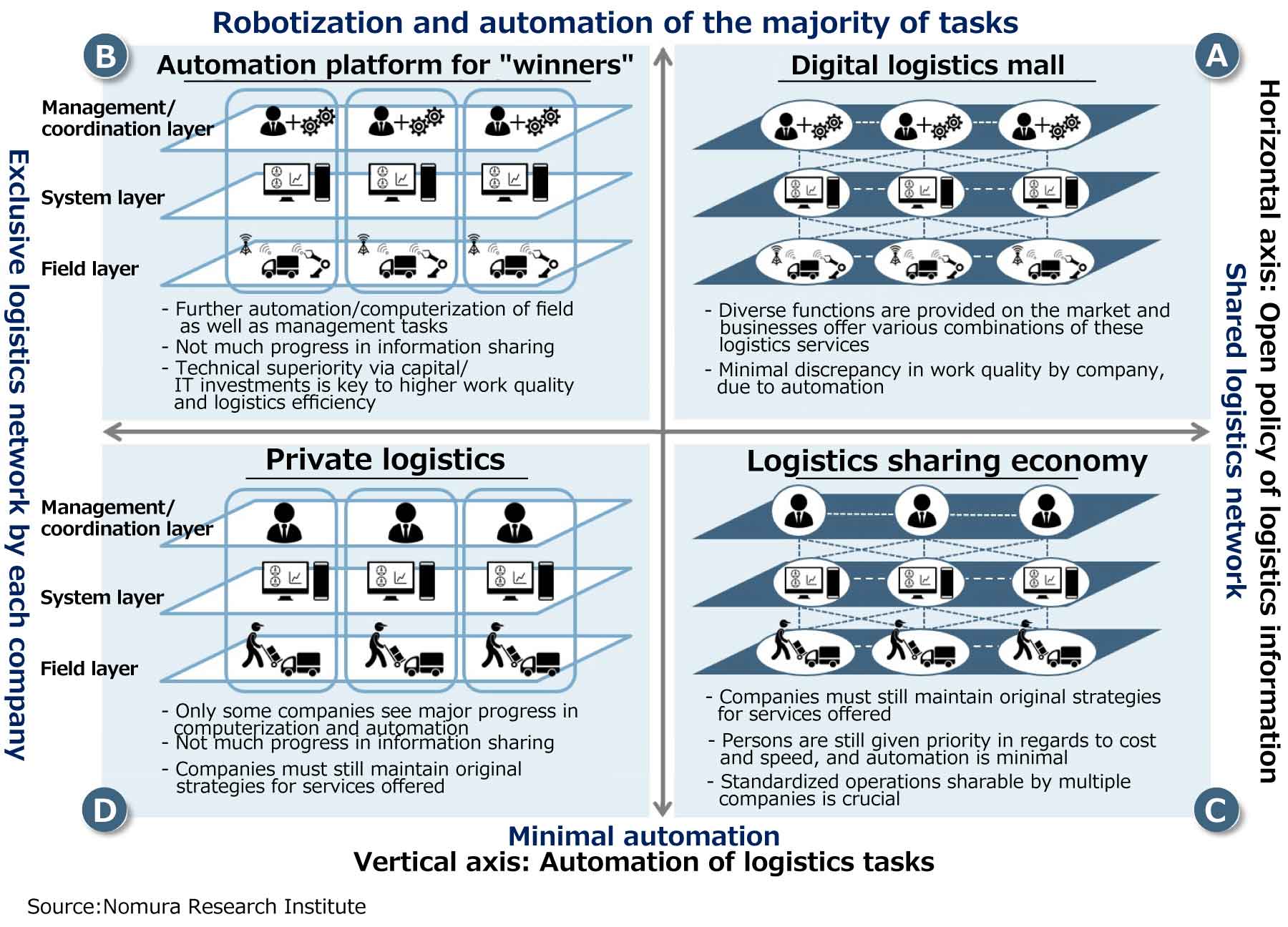
The predicament of Japan's logistics industry
The Japanese logistics industry carries products safely, reliably, quickly, and to any destination. However, they are facing a serious problem of insufficient workforce, making it hard for them to keep offering the services that we have come to take for granted. What will happen to the Japanese logistics industry?
A growing number of deliveries
In April 2017, Japanese Transporter Yamato Transport announced it would be raising its delivery prices and withdrawing from the same-day delivery service for Amazon. This announcement symbolizes the desperate state of the delivery industry as it suffers from a serious lack of drivers. According to the Ministry of Land, Infrastructure, Transport and Tourism, the number of deliveries increased from 2.5 billion in 2000 to 3.8 billion in 2016. Some say this sudden increase, caused by the rapid expansion of online commerce, has surpassed the maintainable level of conventional services.
This shortage of workers is a problem not only for the delivery industry, but for all of Japan's logistics industry. It is especially severe in provincial areas. Soon we may come face to face with a situation in which products cannot be delivered to stores and no one comes to pick up agricultural products.
NRI's Hiroshige Muraoka and Kazuyuki Kobayashi have long been involved in the logistics industry. They say the primary cause of this situation is the increase of B2C transactions—that is, e-commerce deliveries. "Although the number of transactions increased, delivery services offer the same volume discounts as before, while senders and consumers demand excessive services including specified delivery time and redeliveries. This created a degree of strain on delivery businesses that could no longer be ignored, cutting their profitability."
Utilizing the sharing economy
Muraoka says that, despite this tough situation, the Japanese logistics industry "still has potential for improvement through innovation." Regarding innovation, the logistics industry tends to focus on labor saving tactics like robots and automated driving, but Muraoka and Kobayashi say, "There are many things they can do, like rethinking services and changing the mechanism of transportation."
"One example is to diversify the method for receiving packages. Delivery companies have operated on the basis of delivering packages directly to the recipient. However, consumer demands have changed and there are many cases in which the recipient does not necessarily want the package delivered in person. Delivery lockers and pick-up-at-convenience-store are trailblazing services that respond to such changes.
The specified delivery time service could also be turned into a service available only by reservation, with a fixed number allotment much like hotels or airlines. (For example, giving priority to a specified number of people within each time period.) This would keep the demand within the capacity of the businesses and reduce the burden of drivers. These types of systems can be practically and efficiently applied online, and by using big data, businesses could even bring down fees in advance for non-busy hours. There are other ways to interpret changes in user demands and implement digitalization, and there is ample potential for diversifying services and prices."

Hiroshige Muraoka (left) and Kazuyuki Kobayashi (right)
Changing the mechanism of transportation
There are already efforts to eliminate waste by changing the mechanism of transportation.
"For example, manufacturers have always built distribution networks for transporting only their own products, but these days, some competitors cooperate in transporting each other's products. Other companies have split up delivery routes. For instance, where a single driver was in charge of delivering goods from Tokyo to Osaka, they add a relay point in Shizuoka so two drivers handle the delivery, from Tokyo to Shizuoka and from Shizuoka to Osaka. This means the drivers can go home that day, and it is expected to improve productivity."
"There is still a lot of waste in logistics, and if companies work on optimization, they still have plenty of room for improvement. Some startup companies offer an online platform for private truck operators to match packages with available trucks, although they do so on a small scale. These types of services are growing overseas, and if these companies do well, I think we will see big changes in the logistics mechanism."
Future scenario for logistics businesses

The logistics industry is getting a lot of media attention, regarding the price hike and changes to specified delivery time services. On this point, Muraoka anticipates reform in the industry: "The situation should be considered a great opportunity to bring significant reform to logistics services. The industry should use this opportunity to offer diversified services and secure solid profit."
Profile
-
Hiroshige Muraoka
-
Kazuyuki Kobayashi
* Organization names and job titles may differ from the current version.